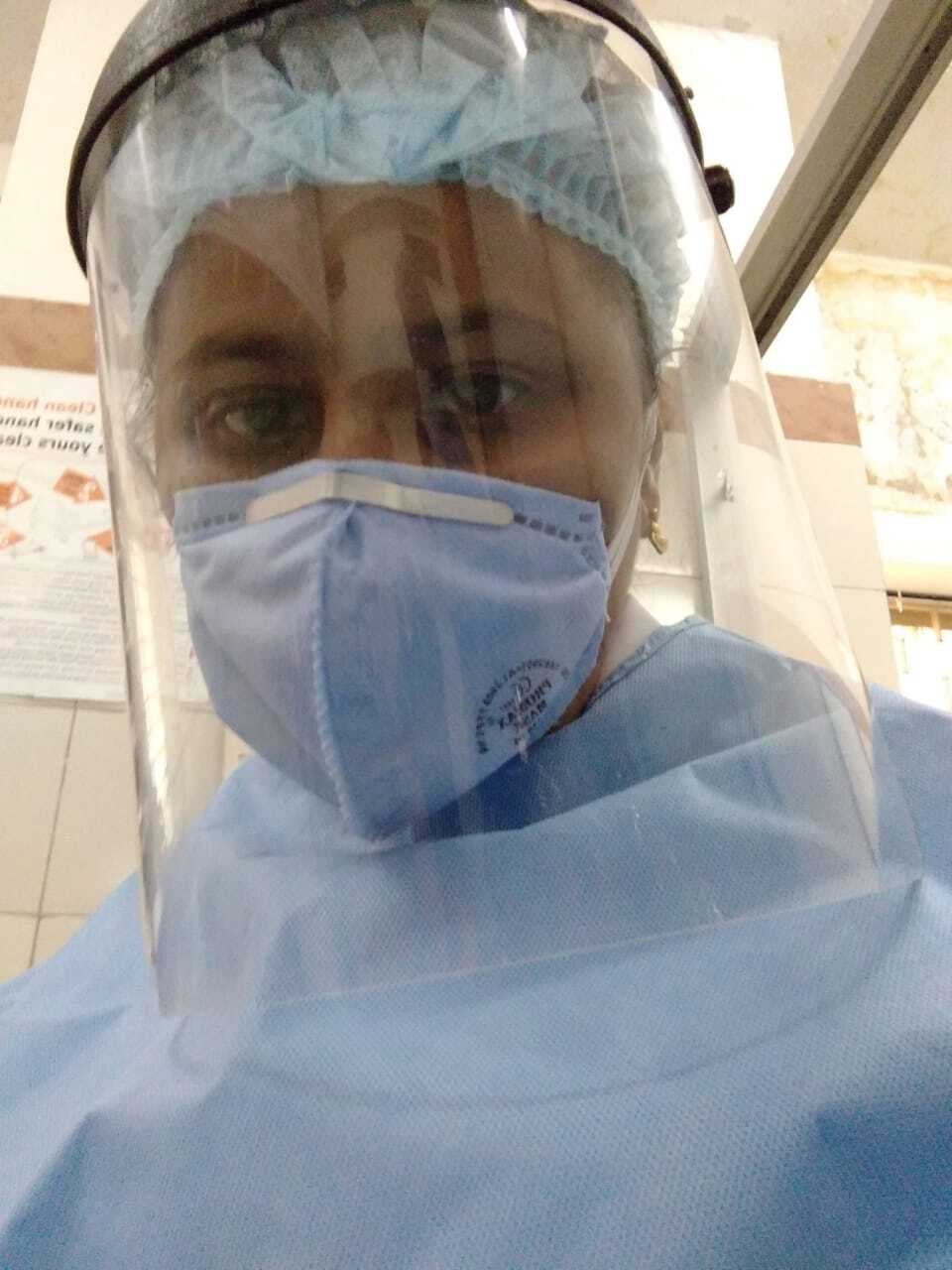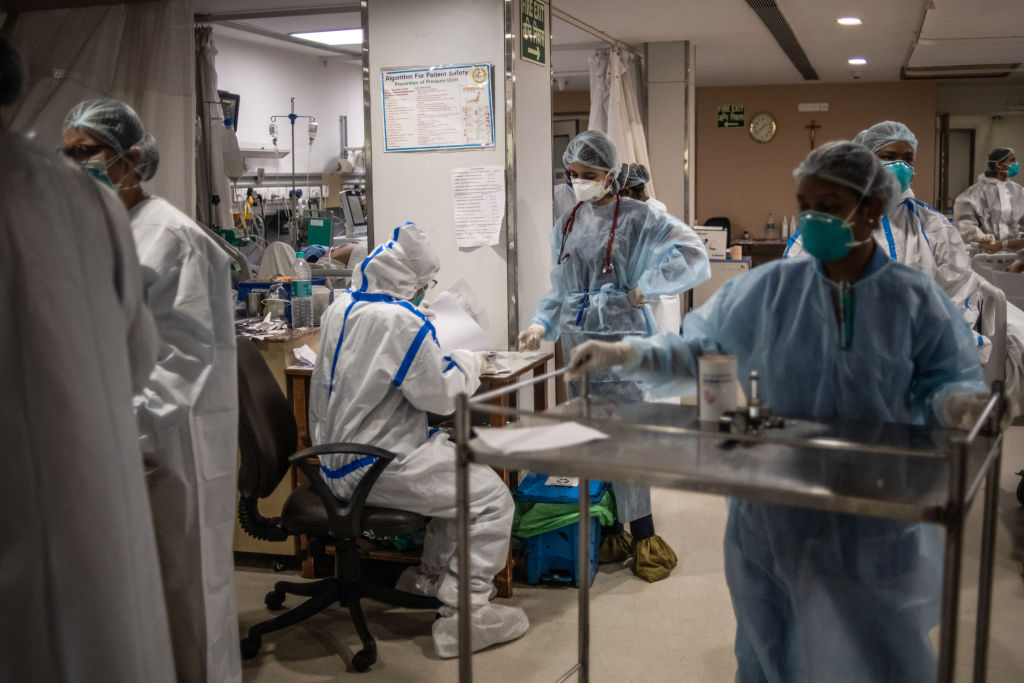Hours before her night shift at the hospital, when 32-year-old nurse Rakhi John received a call from her father she burst into tears. Her grandmother, who raised her since she was one, had succumbed to COVID-19 at her home in the south Indian state of Kerala. John felt orphaned.
She could have left for her family home in Thiruvananthapuram—1,800 miles from Delhi. Within hours she had to go back to the country’s leading hospital, All India Medical Institute of Sciences, where patients were battling to survive against COVID-19. Across Delhi, hospitals were running out of oxygen and beds as the second wave of the pandemic engulfed India. That day, on May 2, India recorded 3,69,904 new cases in a day with 3375 deaths.
She wiped her face and got ready to leave for the first night of her three-night shift at the hospital. “I thought of going back, but duty had to be done,” says John. “And like I am taking care of patients here, someone like me was also looking after her at the hospital.”
It has been seven years since John joined the hospital as a nurse. A year after she was born in Kerala, her mother died of leukemia. Her mother’s last wish was for her daughter to become a doctor.
Without a mother, John was raised by her grandmother. As years passed by, now a teenager, she wanted to fulfill her mother’s last wish, but she couldn’t qualify to become a doctor. Instead, she decided to study nursing.

“I thought if not a doctor, then I could become a nurse, work in a similar field,” says John. “I studied nursing for four years from Kerala and then secured a job at the AIIMS hospital in Delhi.”
Just a few months later, she was married to a fellow nursing officer from Kerala. She and her husband both work at the hospital, but work in different shifts to look after their two daughters: Rosebel, 5, and Isabel, 1. For John, it hasn’t been easy to maneuver around her job—the threat of getting infected or bringing virus to her children hovers over.
“In a PPE suit, the body is sweating as the weather is also hot,” John says. “I try to drink water but still not enough. It can affect health if you wear PPE suits for more than six hours. Your kidneys can get affected. It makes it difficult to work with that suit, but I have to protect myself. I have children at home.”
For health care workers in India, the magnitude of work has intensified manifold in the past few weeks. People arrive at hospitals with critical COVID patients, pleading for beds or oxygen. Every hospital in Delhi has a large hoarding showing all beds are full. Most patients have to leave from the gate—many die in hospital courtyards or streets, due to lack of critical care.
John is cautious about her protection. “I take a shower, change clothes and then leave for home. Then at home, I shower again before seeing my children, who clearly miss me throughout my duty hours. My younger daughter cries when I leave, but duty is my religion,” she said.
After her father had called on Sunday, she went to night duty and was on duty till next morning. The hospital has canceled regular leaves for now. Currently John works in three shifts—morning, evening and night. After every ten days, she has a three-night shift.
Last year when the pandemic had hit India, John was on maternity leave. When she returned, she felt scared, but now feels confident.
Health care workers in India are fighting the pandemic with all might and massive challenges. John feels that every health care worker like her is struggling. “We keep our pain buried in our hearts to serve people,” she says. “I leave my children to work at the hospital. This is my aim also. So the people should strictly follow the COVID protocol. We can bring down the rate of cases if we follow protocol.”


 Fahad Shah
Fahad Shah
